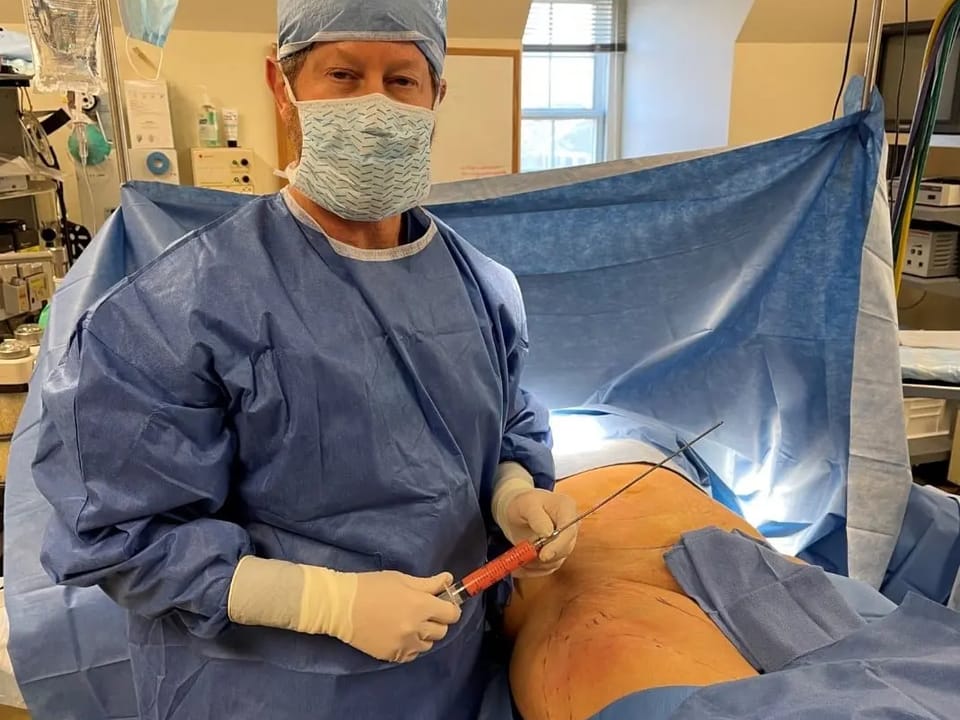How to ensure your plastic surgery safety?
PATIENT SAFETY AND PLASTIC SURGERY
The first concern of both the patient and the plastic surgeon should be safety. Everything in life is a balance of risk and benefits. If you stay shut in your house day and night, you will never be hit by a car. However, you will also deprive yourself of sunlight and fresh air and other physical and mental health benefits. Everyone should realize that everything entails some risk and some choice. We walk barefoot on the grass, yet every year several people die of anaphylactic reactions to bee stings. Plastic surgery and cosmetic surgery must entail some risk. However, there are many simple things you can do to minimize this risk. This is not meant to be an exhaustive and comprehensive list, but rather a simpler list that is easy to follow and should help minimize your risk of surgical complications and disappointment.
The best way to approach this topic of plastic surgery safety is to break it down into 5 parts:
- The surgeon
- The anesthetic
- The facility
- The patient
- The procedure
THE SURGEON
Insist that your surgeon be BOARD CERTIFIED by the American Board of Surgery. As stated in previous blogs – there is no Board of Cosmetic surgery. It does not exist as a recognizable board. It is just some group that confers the title of cosmetic surgery on doctors who pay a fee and perhaps do some course. To be board certified in any specialty recognized by the American Board of Surgery, means you have done many years of training in a recognized program and passed a rigorous examination which usually includes a written and oral examination. So to begin with make sure your surgeon is board certified by a recognized board.
Secondly, your surgeon should be board trained in the surgery you are having. It is absurd that patients would select a surgeon that is trained in a different field. A top plastic surgeon should never be selected to treat your dental cavities or your cataracts or deal with brain surgery. Therefore do not allow someone who specializes in delivering babies to do your liposuction. The number of doctors who take a weekend course in liposuction or maybe just an online tutorial who feel they are qualified to do liposuction or any type of cosmetic surgery is quite astounding.Select a surgeon who is trained in what you want done. Plastic surgeons can do all aspects of plastic surgery.
Now that you have selected a surgeon, who is properly trained in (when you call the office or meet the surgeon, you should definitely ask what their board certification is in) what you want done. Realize that older surgeons will have more experience and will probably cost more. You want to make sure that if you have problems, you can reach the surgeon directly and not just someone who works in the office like a PA. Dr. Berman personally gives his cell phone number to everyone he operates upon.
If you have concerns, is it possible to get an appointment to see the surgeon in a timely fashion, or will you have to wait many weeks? If the surgery goes perfectly, it does not matter, but if you have some concerns or problems, it is very helpful, if your surgeon is readily available. Different surgeons have different bedside manners and styles so choose one that suits your personality. There are lots of good surgeons with different styles.
ANESTHETIC
As a general rule, general anesthesia is going to carry more risks than local anesthetic (even if accompanied by oral sedation). Local anesthetic is not risk free but it does have far less risk. General anesthesia main risks are cardiac and pulmonary emboli (blood clots to the lungs). As a guideline, longer surgeries will have a higher risk of blood clots than shorter surgeries. Having a past history of blood clots increases this risk, as do certain blood abnormalities as does the birth control pill. Getting up and walking several times per day after surgery definitely decreases the risk of blood clots in the legs, but does not eliminate it.
At Berman Cosmetic Surgery we are able to conduct a number of surgeries, such an blepharoplasties (eyelid surgery), laser liposuction (Smartlipo), donut mastopexy (lifting up the nipple), labiaplasties, otoplasties, mini-facelifts, in the office under local anesthetic with oral sedation. This eliminates the risk of general anesthesia. Certain surgeries such as a tummy tuck, breast augmentation, breast reduction, etc require general anesthesia but if you are in good health, the risk should be quite minimal (but is definitely not zero).
FACILITY
There is no reason to incur additional expenses for a Surgicenter for a case that can and should be done in the surgeons office. The surgeon’s office should be clean etc. but does not require special certification to do cases under local anesthetic.
Surgicenters need to be certified and this is done every few years. It is easy to ask if the facility is certified. However, in the greater Washington DC, northern VA, McLean area, all such facilities are certified.
The next question should be who is doing the anesthetic. Almost always it will be a nurse anesthesiologist or a doctor anesthesiologist. For almost all patients, either one is fine. If you have a lot of serious unstable medical health issues, you probably should not be having cosmetic surgery or should be done in a hospital setting. If you are over 50 years of age or have significant health issues, you should get a surgical clearance from your family doctor or your specialist. Dr Berman does not think that the surgeon should be providing IV sedation, since the surgeon should be focusing on the surgery while the nurse anesthesiologist can focus on the anesthetic component.
THE PATIENT
If you are over 50 years old and having general anesthesia, It is a best practice for you to have a pre-op clearance and an EKG. If you are less than 50 years of age, nothing is required if you are in good health. Patients who have had gastric bypass should be followed by a nutritionist at least yearly to make sure that all their vitamin and hormone levels are normal etc.
You should avoid aspirin and Bufferin and Excedrin for 10 days before surgery. Ideally, one should avoid NSAID’s (Motrin, Advil, ibuprofen etc) for a week before surgery. If you are being treated for either hyper or hypothyroidism and your thyroid levels are not stable, then you should have them checked. Same thing if you are diabetic. You want to make sure before surgery that your blood sugar levels are normal and stable. As an individual on blood pressure medication, you want to make sure that your blood pressure is well controlled. If not, you should delay your surgery, until your blood pressure and blood sugars are well controlled to ensure your safety during plastic surgery.
If you are on the birth control pill, you may want to stop it for a month before surgery since being on the pill does raise your risk of blood clots. However, you have to weigh this with the risk of getting pregnant. Of course, you should not be having general anesthesia if you are pregnant.
If you are significantly overweight, it is better for your anesthetic and your final result, if you can drop some weight (in a healthy fashion, not with drugs) prior to surgery. Getting up and walking around several times per day, starting the first day of surgery – is important for decreasing your risk of blood clots, as well as helping expand your lungs and this early mobilization helps you to bounce back faster.
If you smoke, you want to be off all nicotine products (cigarettes, vaping, patches, nicotine gum etc) for ideally 6 weeks before surgery and 4 weeks after surgery (if you can do this, then you should definite quit smoking for good:))
THE PROCEDURE
The risk of the procedure is mostly based on the above factors: it is usually true that your serious risks are less with local anesthetic than general. Your risks do go up with longer cases than shorter cases. Your general health will play a role in your risk of complications. – someone who exercises and is not overweight, is less likely to have complications than someone much older, who never exercises and who is overweight.
It is important to know that the serious complication rate from cosmetic surgery is very low, even if you are not perfect. However, paying attention to the above, will help minimize your risk of any surgery. Of course, each person is unique and you need to discuss your particular circumstances with your individual surgeon to ensure your safety during plastic surgery.
Contact us for a consultation!
Contact us for a consultation







